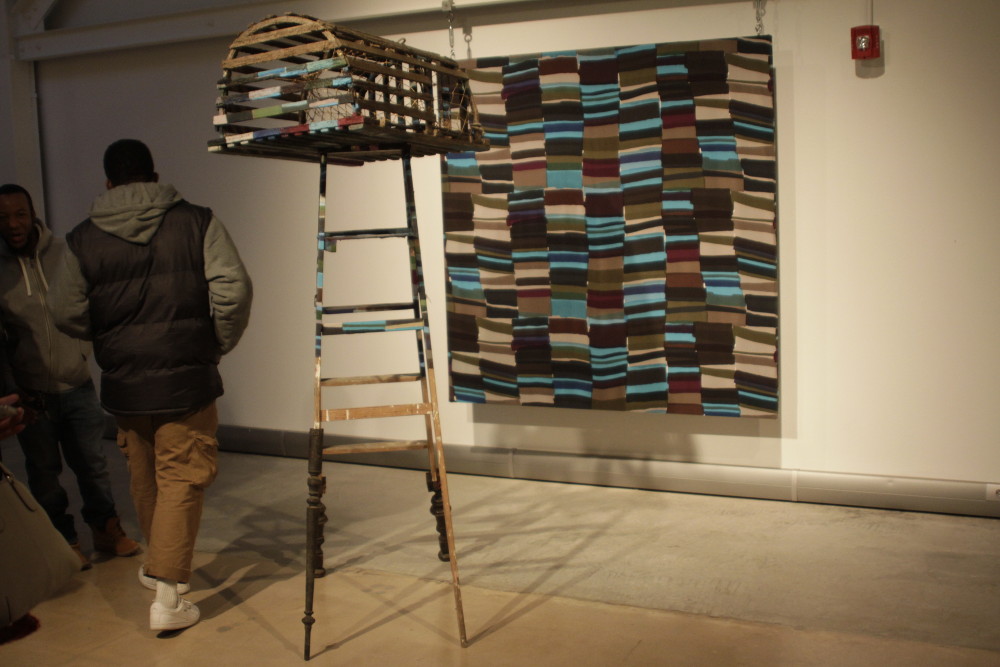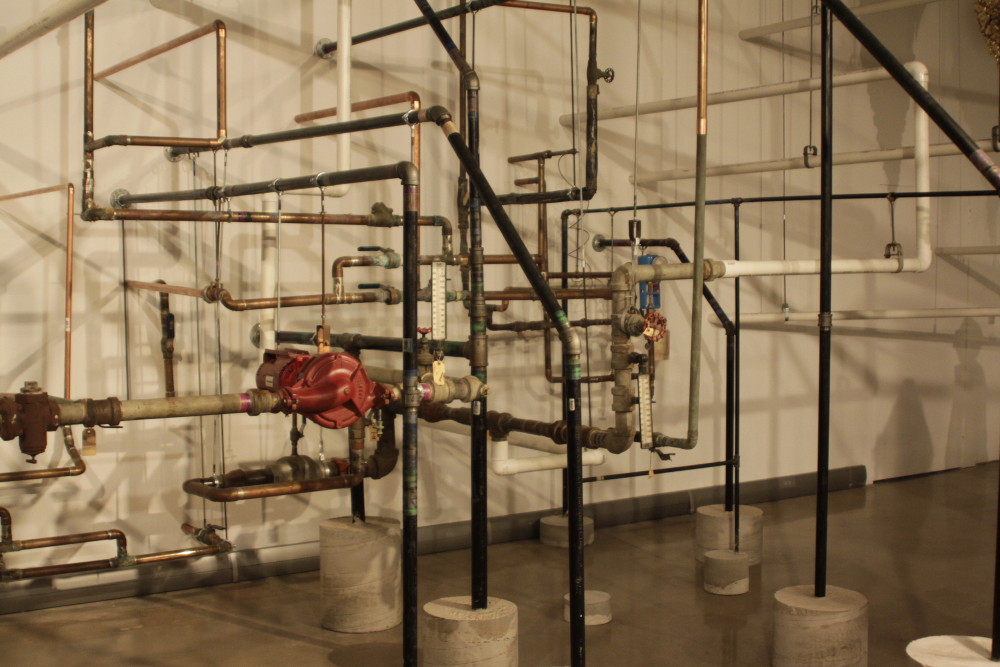Jesse Krimes’ latest art installation, “Deus ex Machina,” held its opening reception Jan. 14 at 5 p.m. at the Drexel’s Leonard Pearlstein Art Gallery. The name of the installation means “God from the machine” and refers to the literary plot device whereby an unexpected power or event arrives to save an otherwise hopeless situation, commonly used as a literary plot device. Krimes’ exhibition, however, examined the term in a new light.

“Deus ex machina is a way to resolve an unresolvable plot, and I translated that literary device into aesthetic terms and used that to force myself to complete works out of the objects that I had available to me, without introducing extra foreign objects that I could purchase,” he said.
Krimes, a Philadelphia resident, was sentenced to four years in prison on drug-related charges. His past work has focused on the unfair stigma lent to himself and others by prison time, and this installation expanded that theme by exploring perspectives in general.
Notable about the installation is that there is very little of the use of traditional materials. From tires and broken bottles to piano legs and balls of aluminum foil, each piece is composed almost entirely of objects that would otherwise be considered as trash. What’s also interesting is that the pieces all fit together thematically, despite wildly varying in size, shape or color.

“A lot of these objects are found materials and they often come from everyday experiences that we encounter and walk by but don’t give much thought and contemplation to,” Krimes said.
He continued, “Over a long period of time, I’ve been collecting these objects and building this collection, and in time they begin to start having dialogue with each other, because each object has this kind of internal latent language.”
Each object, though able to be interpreted independently of one another, can work together to convey a new concept or idea. This pattern of separate yet cohesive layers ultimately builds up to include even the installation and its viewers, as the artist designed the display around the space itself.
“So you come in as an external viewer, you see the objects, and by the end you’re immersed within one of the objects. And it’s all about shifting perspective and getting people to slow down and see things from a different perspective,” Krimes said.
The installation was designed to force the viewer to question what was and was not part of the installation, from the individual pieces to the environment surrounding the gallery.

“Everything developed very intuitively,” Krimes said about the experience of creating the installation.
“I like to let the works build meaning through the process of their own transformation. I used Deus Ex Machina, the title of the show, as a loose framework, which forced me to create unified works out of these disparate objects and disparate elements,” he concluded.
Krimes began his artistic career in prison, using soap as his medium. While he has progressed through a wide range of media including tape and plumbing, he still draws inspiration from his time in prison. He plans to continue creating unusual art with unconventional tools, but for now he intends to take a break and get some sleep.


